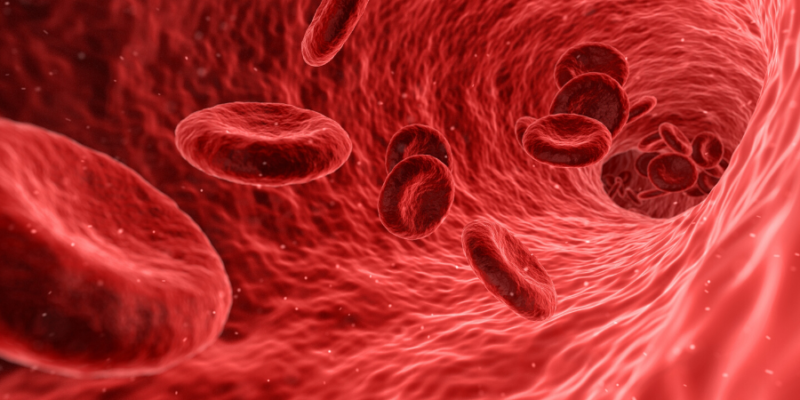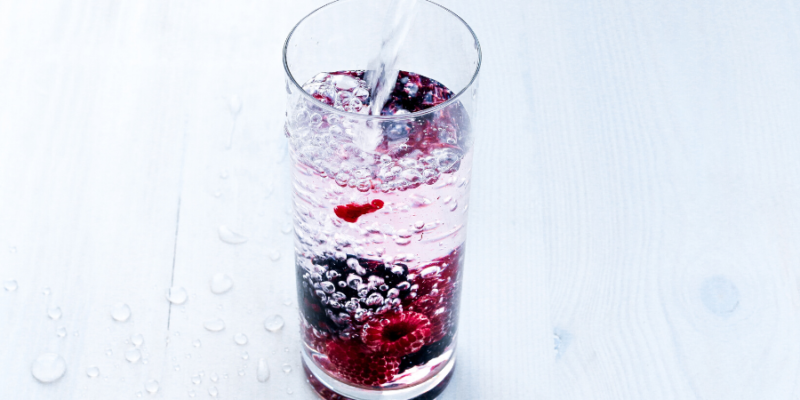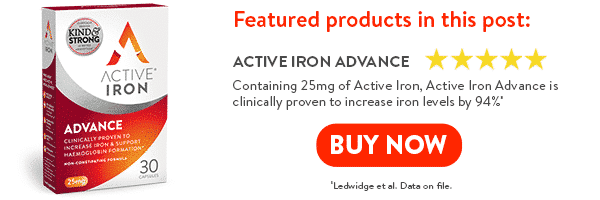New Year’s resolutions, we’ve all made them and some of us have used them to achieve great things; like training a half marathon or learning to play the guitar. Research shows that it takes 21 days to form a habit but 90 days to make it a lifestyle change. This means it’s no coincidence that the things that ‘stick’, like marathon training, are the things we put conscious and continuous effort into.
The most popular New Year’s Resolutions tend to be about eating healthier, being more energetic, achieve a greater balance of work and home life, or just being more organised so we can get it all done with less stress.
Unfortunately, by the time we reach the second or third week of January, these New Year’s Resolutions tend to be abandoned. The guilt of abandoned resolutions can add unnecessary stress to your Winter routine (dark mornings, cold nights, school runs in the rain and the slow crawl towards a January payday – not ideal!).
How do we take these excellent new habits and form a long-term lifestyle change?
Regardless of what goals you are setting, the most effective way to create a sustained change is to plan and track your progress using milestones and rewards. Milestones show us what we are accomplishing and allow us to see how we can accomplish even more. If you are trying to eat healthier, setting a goal to eat 5 portions of fruit and vegetables every day for a month is a good place to start. Make sure you set a milestone, track your progress and celebrate your wins. If healthy eating is your goal, then you could celebrate with a small (non-food-based reward) e.g. buying a new book or a trip to the cinema.
As a Nutritional Therapist, I work with my clients to create SMART goals (specific, measurable, actionable, relevant, time-bound), we often take a phased approach; charting milestones along the way. There are certain behaviours that my most successful clients exhibit when taking on a new challenge. I believe that these behaviours are key to success for both health and non-health related goals.

Weekends are for planning
It’s impossible to be active on social media without encountering the concept of meal prep. This is a popular key to healthy-eating success – for anyone trying to find extra time in the day, trying to eat well, or train, preparing meals in advance just makes sense. After a long day, it can be difficult to make a healthy meal from scratch, so this is often where many people go off plan, reaching for something convenient and unhealthy.
Start small and simple, make an extra-large version of your main meal on Sunday and divide into portions for lunches during the week.
Other ways to start simple meal-prep include
- preparing larger batches of overnight oats and keeping it in the fridge
- preparing portions of fruit for smoothies and snacks
- peeling and preparing vegetables for main meals, these can be kept in the fridge or freezer until needed
Looking after your energy
You can’t pour from an empty cup, or so the saying goes. In order to have the energy to look after everyone else in your life, your work and your hobbies, you must first look after yourself.
If you struggle to get out of bed in the morning or drag yourself through the day yawning and propped up by caffeine, you are not alone. A new survey of British GPs found that one in five people who call for a consultation complain about being fatigued, and other figures show that a worrying 90% of us feel tired daily.
How will you ever stick to a new habit if you feel tired all the time? Don’t worry, there are lots of ways to increase your energy levels.
One step in this is to ensure that you are eating regular, nutrient-dense meals. This starts with a good breakfast and one of the best is porridge oats. Oats are a slow-release carbohydrate (low GI), this means you will have a sustained energy source to fuel your morning. Top your oats with hemp seeds, berries and yoghurt and you have a high protein snack rich in antioxidants that will ‘feed’ your brain as well as your body.
In addition to these good quality Macronutrients (Fat, Protein, Carbohydrates), a balanced diet should also contain sufficient amounts of micronutrients (vitamins and minerals). Energy supporting micronutrients include; B Vitamins, Iron; Vitamin D, Zinc, Selenium and Vitamin C.
B Vitamins
There are 7 essential B Vitamins, B1, B2, B3, B5, B6, Folate, and B12.
B6 helps your body turn glucose from sugar and carbohydrates into fuel, folate and B12 help your body create healthy blood cells. B5 has been shown to have a calming effect on the nervous system. Along with physical energy, B12 and folate contribute to mental cognition and enhance alertness.
B vitamins are water soluble and we need to consume them every day in order to meet our daily Stress, alcohol and exposure to toxins such as smoking deplete our B vitamins. If you are struggling to meet your daily requirements or then you may benefit from taking a B complex supplement for men or for women.
Vitamin D
Vitamin D is vital for making our muscles work efficiently and boosting energy levels. Vitamin D receptors on your skin can synthesize Vitamin D in our bodies when exposed to adequate sunlight. In the Northern Hemisphere from October to April, there is insufficient sunlight to activate vitamin D production. Vitamin D is found in some foods e.g. fish, fish liver, eggs. However, it is estimated that 60% of the UK population is Vitamin D deficient.
A recent study from Newcastle University showed that muscle fatigue was reduced and mitochondrial activity was increased in those supplementing with Vitamin D. Mitochondria are known as the ‘powerhouse’ of the cell as they help to manufacture ATP, an energy rich molecule from glucose and oxygen. Poor mitochondrial efficiency is often linked to fatigue-related disorders, poor sleep and mood.

Iron
Iron is an essential mineral used by our red blood cells to transport oxygen around our body. Iron is proven to reduce tiredness and fatigue; this is not just physical fatigue but also mental (or cognitive) fatigue too. Whether your New Years Resolution is about physical achievements or learning something new, your iron level should be high on your list of supporting elements.
There are two types of iron found in the diet, non-haem and haem. Non-haem iron is found in plants, nuts and legumes. This type of iron is absorbed at a much lower rate than heme iron, which is found in animal products such as meat, especially red meat.
Even if you are making a conscious effort to ingest more haem iron, daily habits like drinking tea and coffee after your meals can reduce iron absorption and reduce your iron intake. If you find that you aren’t consuming enough iron in your diet, then an iron supplement that is kind on your stomach can help.
*Note: Those who have Haemochromatosis should not take iron supplements.
Zinc
Zinc is a trace element that is an important building block in your body for enzymes, immune cells and hormones. A lack of zinc can make a person more susceptible to disease and illness as well. Adequate zinc levels can support digestive health, wound healing and blood sugar balance. Some medications, e.g. warfarin, antibiotics and aspirin, can interact with zinc and reduce the amount available in the body.
Selenium
This essential mineral plays a vital role in our physical and mental health. In relation to energy, Selenium is essential in maintaining optimal levels of the energy-producing antioxidant ubiquinone – (also known as Coenzyme Q10 (CoQ10)) – which is needed to create the energy currency (ATP) for every organ, muscle fibre, brain cell, and tissue in the human body.
Selenium rich foods include Brazil nuts, milk, yogurt, ham, beef, pork, chicken, eggs, cottage cheese and brown rice. Those following a plant-based diet, those on a restricted diet or those with malabsorption issues (e.g. those with Crohn’s Disease, Ulcerative Colitis) may benefit from supplementing with selenium or a multivitamin containing selenium in conjunction with zinc.

Water
Hydration is also very important for feeling energised and alert. It can be difficult in winter to consume cold water; however, you can always eat your water. Liquid in soups, broths, stews, vegetables e.g. cucumber and fruit e.g. watermelon, count towards your daily intake. Herbal teas are also a great way to stay warm and hydrated.
Relaxation
When we are tense and stressed, we use more cellular energy (ATP) as our body enters ‘fight or flight’ mode. Your body uses energy to prepare for an escape at any moment, pumping oxygen to your muscles, keeping your brain and senses on high alert. By using breathing, mindfulness our other relaxation techniques, you can reduce your overall stress levels and increase your energy levels.
Abdominal breathing, also called diaphragmatic breathing, changes the oxygenation levels in your body as well as strengthening the diaphragm. Many people feel calmer and more centred afterwards, and it may help to reduce negative emotions. It can be practised anytime, anywhere, for free, and has been associated with a host of positive physical effects.
You are currently viewing a placeholder content from Default. To access the actual content, click the button below. Please note that doing so will share data with third-party providers.
Exercise
Exercise can improve energy in the following ways:
- releases endorphins
- helps with quality of sleep
- helps manage stress
- trains the heart to work more efficiently, getting more oxygen to the brain and other organs
It’s best to exercise early in the day if possible, the release of endorphins allows you to feel more focused, positive and energised. Due to this endorphin release, some individuals can find their sleep disrupted if they choose to exercise later in the day e.g. after 7 pm.
Just 35 minutes of brisk walking (fast enough that you cannot carry on a conversation or use your phone) 5 times per week is sufficient exercise. However, adding some resistance exercise – Yoga, Pilates, weightlifting, rebounding – can improve mitochondrial health, leading to more efficient energy production.
Whatever your resolution is for 2020 and beyond, a balanced diet, exercise, sleep and making time for relaxation will ensure you have the energy you need to stay focused and on track for success.
About the Author:
Claire O’Brien, is the owner of Honest + Goodness Nutrition. She is a qualified Nutritional Therapist and member of the NTOI and ANP. Claire specialises in working with those looking to make long-term dietary changes e.g. Cardiovascular Disease, IBS, IBD.


